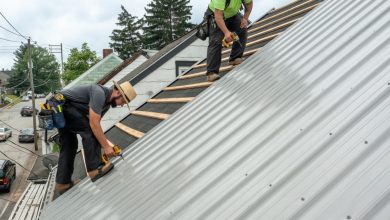
Relocating as a software developer is an exciting step, whether you’re moving for a new job, a change of scenery, or better networking opportunities. However, moving across states—or even countries—requires careful planning to ensure a smooth transition. From securing housing to setting up a remote-friendly workspace, here’s how to make your move as seamless as possible.
Research Your New Location
Before packing up, learn as much as possible about your destination. Consider the cost of living, job market, tech community, and quality of life. If you’re moving to a major tech hub like San Francisco, Seattle, or Austin, expect a competitive housing market. Smaller cities, on the other hand, may offer a lower cost of living with growing opportunities for remote work.
Join local developer groups on platforms like Meetup, LinkedIn, or Discord to connect with professionals in your new city. Many communities offer networking events that can help you establish roots before you even arrive.
Secure a Remote-Friendly Home
If you work remotely, prioritize finding a home with a dedicated workspace. Check internet providers in the area to ensure you’ll have a reliable connection, especially if your work involves frequent video calls or cloud-based development.
Coworking spaces can be a great alternative if your home setup is less than ideal. Many cities offer memberships that include high-speed internet, networking opportunities, and a change of scenery from your home office.
Plan Your Move Efficiently
Relocation logistics can be overwhelming, especially when moving long distances. Start by decluttering—developers tend to accumulate old gadgets, cables, and devices. Sell, donate, or recycle items you no longer need.
For transportation, decide whether you’ll drive to your new location or ship your vehicle. If you prefer to fly or want to avoid a long road trip, you can transport your car Georgia through a professional service to ensure it arrives safely at your destination.
Update Legal Documents and Finances
A new state may mean different tax laws, so research how your income, property taxes, and deductions might change. Update your driver’s license, vehicle registration, and voter registration as soon as possible.
If you’re an independent contractor, check whether you need to register a new business entity or update your tax filing status based on your move.
Adapt to Your New Work Environment
Once settled, optimize your workspace to maintain productivity. Test your internet speed, ensure your desk setup is ergonomic, and establish a routine that balances work and exploration.
If you’re relocating for a new job, schedule time to meet your team in person or virtually. A smooth transition into your new role will help you integrate quickly into the company culture.
Explore and Connect
A move isn’t just about work—it’s about building a fulfilling life in a new place. Explore local coffee shops, restaurants, and parks. Attend tech meetups and events to expand your network. Connecting with fellow developers can open doors to new opportunities and friendships.
With the right planning, relocating can be an exciting step in your career. Whether you’re moving for work or adventure, embracing the change will set you up for success in both your professional and personal life.





